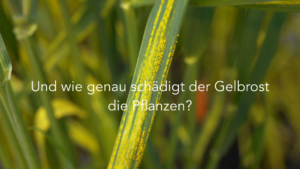
Infection with brown and yellow rust
About the first tests of susceptibility to fungal pathogens.
The Pilton research project (fungal tolerance of wheat using new breeding methods), initiated by 54 plant breeding companies, is intended to contribute to the social debate on whether and how efficiently new plant breeding methods can make agriculture more sustainable. The first wheat grains processed using CRISPR/Cas have since been genome-modified and have now been transferred to the greenhouse. Whether the genome-editing step was also passed on to the next generation will become apparent after the harvest. Dr. Dietmar Stahl, scientific director of the project, explains the current status in the video.
Published on the 02.11.2020

About the first tests of susceptibility to fungal pathogens.

Plant breeder Dr. Stefan Streng on breeding, CRISPR and the benefits of new breeding methods.
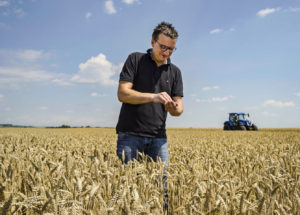
Farmer Bernhard Huber on crop protection and fungal diseases.
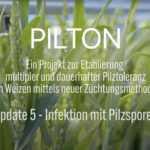
The winter wheat trials have started and now we are waiting for the first results
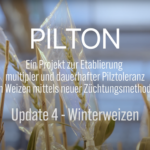
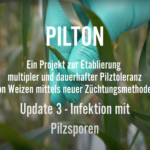
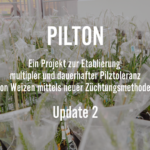

Start of the research projects Fungal tolerance of wheat by new breeding methods („Pilztoleranz von Weizen mittels neuer Züchtungsmethoden“ = PILTON).